When I first decided to try living a zero waste lifestyle for just one week, I was in shock with what I had done and I called my friends to tell them how insane I am, repeatedly.
What is a zero waste lifestyle, you ask? It means living your life in a way that produces very little to no garbage. Those that follow this lifestyle sometimes have different “rules” about what counts as waste; I decided that I could still compost and recycle, but nothing that went to the landfill was allowed. Every source of trash had to be altered, including groceries, take-out and to-go foods, clothing, and makeup.
In my friend group, I’m known as the one who is not afraid to yell at someone over compost. But even so, challenging myself to zero waste for a whole week was tough – I had to take my reduce, reuse, recycle mantra to a new level. Here’s what I learned after the tough week of zero waste:
1. This is not a challenge to take lightly
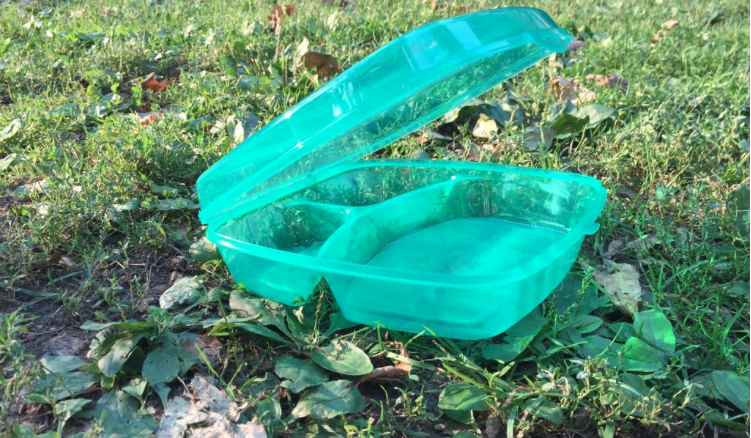
Photo by Dannah Strauss
First, I learned that converting to a zero-waste lifestyle should be a gradual change. It takes a lot of research to understand what exactly in your house/kitchen/bathroom is recyclable or compostable. Then it takes even more time to go through your daily routine to see what you’re doing that makes garbage. I also learned that it sort of sucks to carry containers everywhere with you, but going green isn’t always convenient.
2. Waste doesn’t just mean what’s thrown out by you
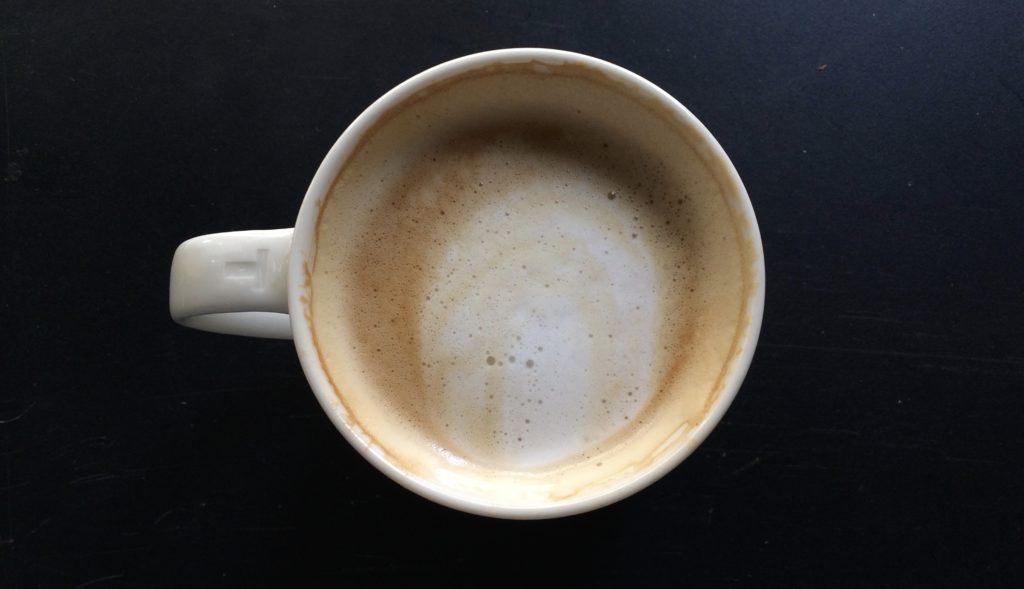
Photo by Anna Neufeld
I realized the amount of trash that the things in your household produce BEFORE they’re packaged, even if the packaging is recyclable, is also really important. I still went to Starbucks way too frequently and I was aware that even though I had not made any trash myself, my drink probably had before it got to my reusable mug. The same thing went for the hoodie that I bought. Even though I had a reusable cloth bag to put it in and it came with no sticker or tags, I wondered about its story before it had gotten to that little souvenir shop in Whistler.
3. It can actually make you healthier
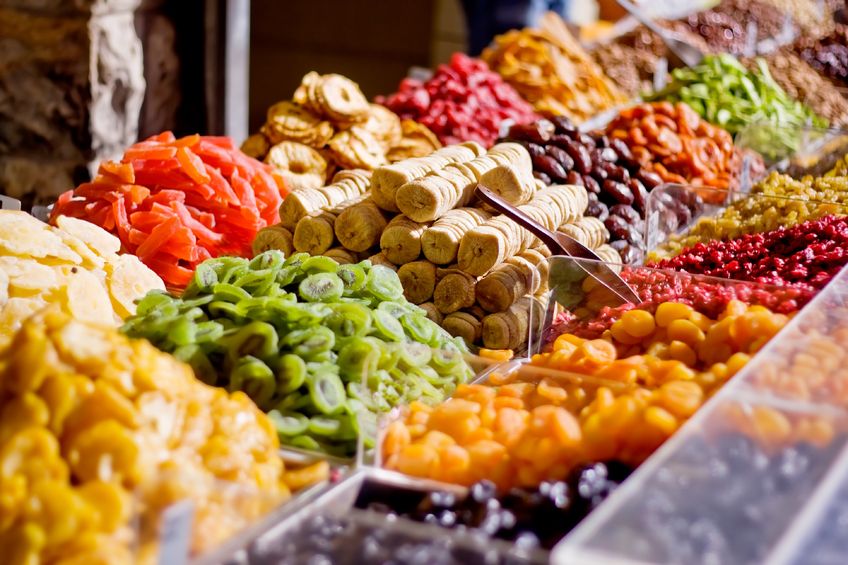
Photo by Delissa Handoko
Living zero-waste makes you eat less processed foods and more healthy whole foods. If you’re shopping in the grocery store, you can’t buy all the unhealthy ready-to-go snacks because they’re all packaged in trash. Instead, you find yourself mostly in the bulk section and in fresh produce with containers that you brought from home. Farmers’ Markets became my new BFF. Although overcoming the urge to buy packaged snacks was hard in the moment, it felt better later on to exercise some willpower.
4. You can recycle almost anything
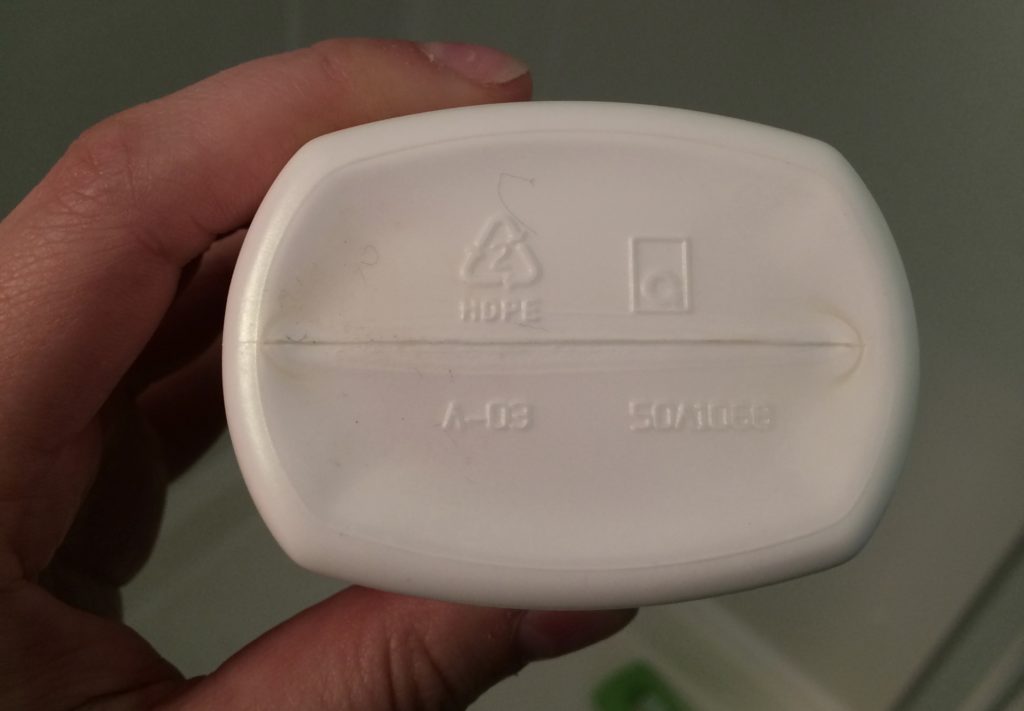
Photo by Anna Neufeld
I learned that many things that I might have thrown away are recyclable. I admit, sometimes I’m too lazy to bring my empty shampoo bottle to the recycling bin and instead I throw it away *shame*. It’s important to know that tea bags are compostable and whether or not the bag you just bought your clothes in is. If you don’t know your recycling basics, don’t be embarrassed, but you should read up on it. From wrapping paper and Q-tips, to coffee cups and plastic grocery bags, there really is a zero waste option for absolutely everything, you just need to find it.
5. You’re gonna have to get creative
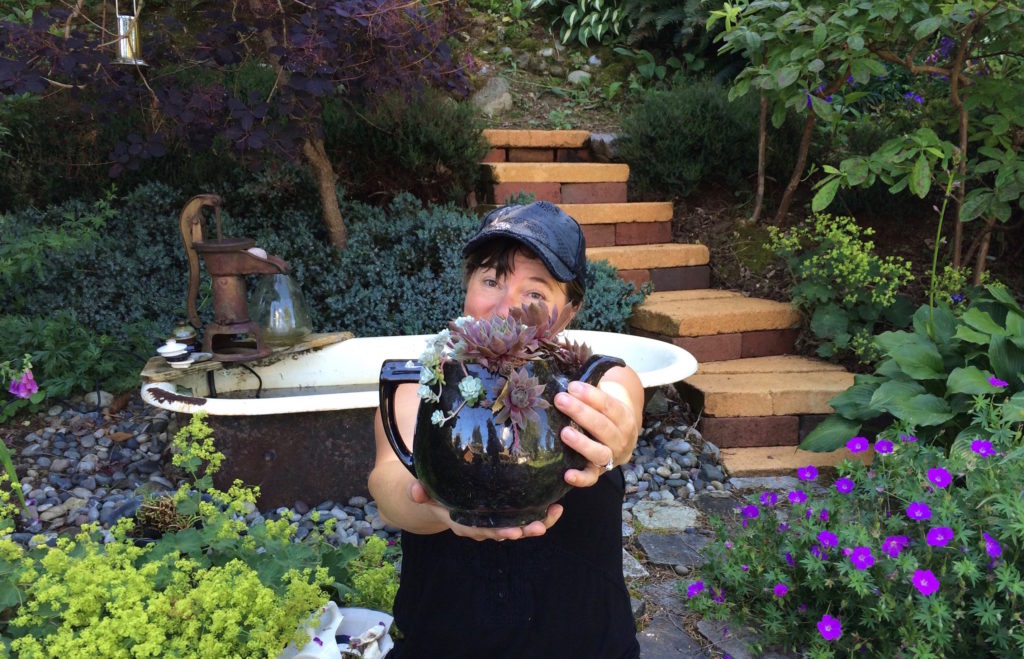
Photo by Anna Neufeld
In order to produce zero garbage, you need to think of new uses for anything in your household that breaks or stops working. You need to be creative, like my mother, who reuses a lot of junk in our house in her garden that you see above. She is the master of reusing things, and she’s also not afraid to dig through the garbage to find that eggshell that should have been composted.
6. We live in a world that loves waste
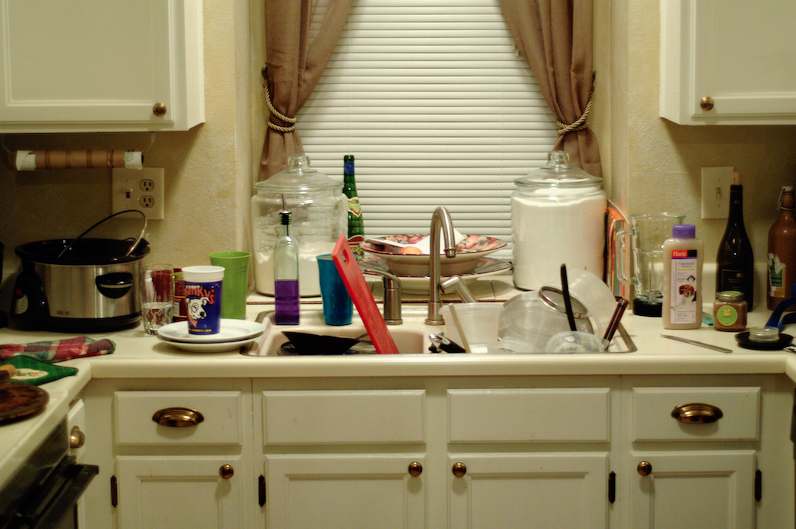
Photo courtesy of heathersdish.com
It’s not too hard to think of ways to reuse something once or twice, but eventually, what the heck are you going to do with an old shirt after you’ve already used it as a rag or a headband? What about an old pair of shoes that’s too far gone for charity, or a broken lawnmower? According to “The Story of Stuff”, a big issue is that the things in your house aren’t designed to stick around for forever, they’re actually designed to end up in the landfill fast so that you buy more. Living zero-waste for life would be hard since we live in a disposable society but it’s possible and so worth it.
7. Living completely waste free it not easy
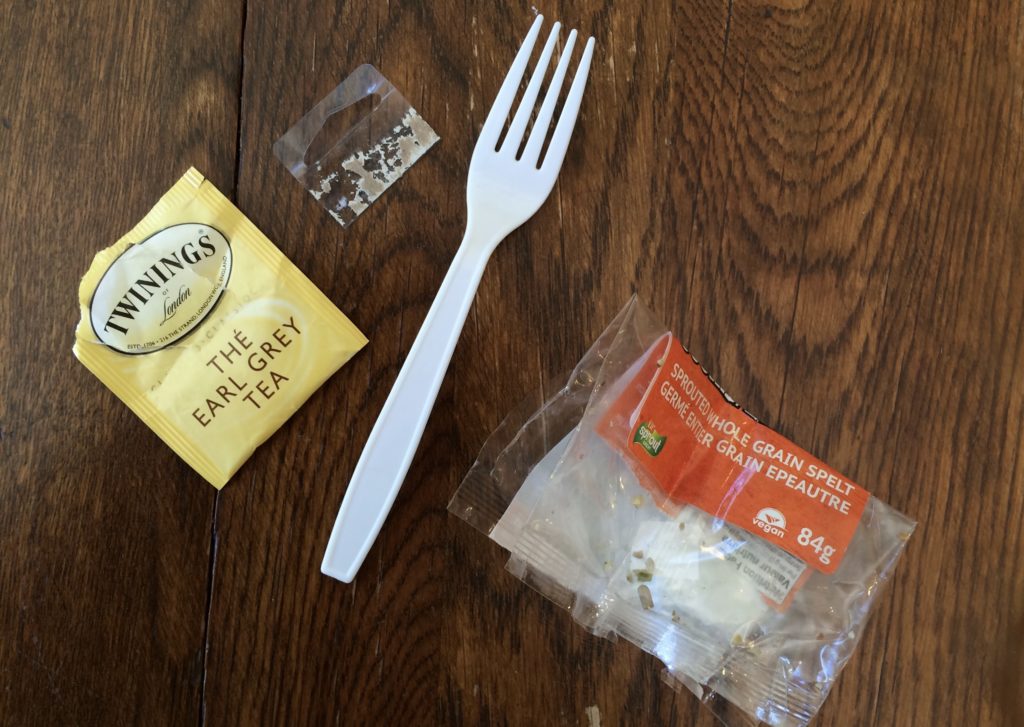
Photo by Anna Neufeld
I learned that you win some and you lose some. I forgot to bring a reusable bag somewhere, and ended up spending an extra 10 dollars just so that I had something to carry other things I bought around in. And I tried my very best, but I couldn’t say no to a cookie, some tea, or my best friends birthday cake. So this is my trash from the week.
8. It can be done
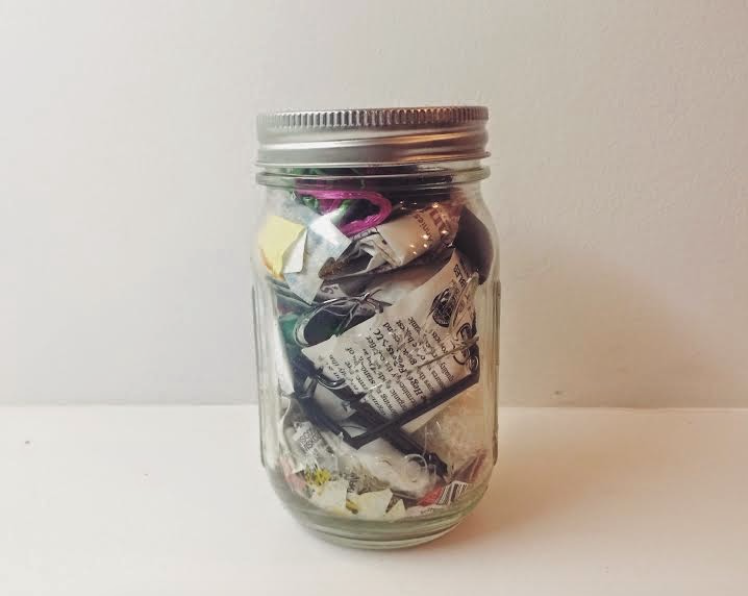
Photo courtesy of Lauren Singer on trashisfortossers.com
After a week of zero waste I really admire those that have done it for years, like Lauren Singer the author of the zero-waste blog “trash is for tossers” from NYC. Lauren can fit all of her trash from the past two years into a 12 oz. mason jar. Another role model is this guy who motivated himself to waste less while on a bike trip by forcing himself to carry any trash he made with him. I decided that going zero-waste isn’t insane, it’s really what we all should be aiming to do. I definitely look at trash differently now, it feels like a responsibility to make less of it and I’ll definitely continue trying.
9. It is worth it
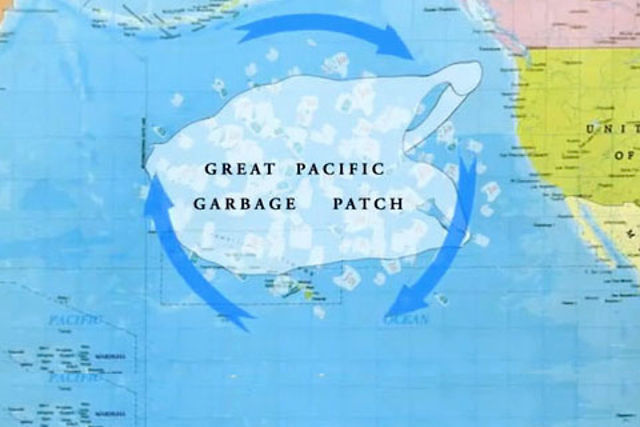
Photo courtesy of triplepundit.com
Hearing things like “every person makes a difference” never resonates with me. It’s really, really hard to imagine that you make a difference in the world, but we need to cut that crap out. There is a garbage patch that is the size of Texas floating in the Pacific continuing to grow while the average person generates 4.3 pounds of waste per day. So just one person who chooses to make 0 pounds really does matter and does change things — by 1,570 pounds. Absolutely anyone could reduce the amount of trash they make with a little awareness and some effort, and it’s time to give it a try.


